几年前我第一次见到朋友刷抖音还是在2019年,一玩儿就是二三十分钟,我当时工作比较忙,所以不敢碰。那时,我不仅自己不碰抖音也劝我的同事不要碰,感觉太耽误时间了。可后来微信、微博等App纷纷推出了短视频专栏,我也在不知不觉中也刷起了短视频,曾经也很难自拔,直到我发现自己被平台追着“喂”我的时候,我才发现绝大多数的博主根本无法给出我内心需要的内容。所以,我渐渐认识到,虽然很多短视频制作优秀甚至能触及我们的心,但终究是“身外之物”,即便可以给人快捷的视听效果但解决不了一个人灵魂的饥渴,当你习惯了沉迷于“别人的表演”中时,短视也在悄然形成。今天我们就探讨一下一个人从小到大遇到的短视现象。
短视,是当代中国人生活中的“隐形杀手”,从潜伏在从健康、家庭到企业、政府的每个角落。看似能捡个便宜,实际上却常常因小失大,甚至吃大亏。而这一切的背后,其实隐藏着一个更深层次的原因:信仰的缺失。没有信仰,没有那位至高者的带领,人们只能被眼前的利益牵着鼻子走,忽略了长远的意义或者说虽然意识到了长远意义却不得不向眼前的私欲低头,习惯眼前的苟且,最终让个人、家庭、企业甚至整个社会陷入了短视的陷阱。今天,我们就从幽默的角度“扒一扒”这些短视现象,同时探讨信仰如何带来真正的解药。
一、个人层面的短视现象:没有信仰,人生难免迷失
先说健康。许多人一边高喊“年轻就是资本”,一边用生命拼业绩。“996福报”喊得响,身体却越来越“趴”。直到体检报告的红字像战报一样铺满纸面时,才开始猛灌枸杞水、吃保健品、狂练健身操、八段锦。但身体不是工具,用完了还能随意替换,缺乏对生命本质的敬畏和长远的规划,结果只能用昂贵的代价补偿短期的“便宜”。
电动车则是另一个让人哭笑不得的案例。买的时候觉得环保又省钱,再加上政府补贴,一举两得。而且众多电动车如同20年前出现的“山寨机”一样,唯独不缺的就是各种各样花里胡哨的功能,像一个大玩具。然而,一到节假日或春节返乡,服务区的充电长龙却让人明白了什么叫“现实的毒打”。为了省几百块油钱,耗掉半天的时间排队充电;为了“环保先锋”的光环,忽视了电池污染问题迟迟得不到解决。问题在于,许多人在决策时,只看到了补贴,却忽略了使用中的种种现实困境。
教育事业和年轻人的职业选择也充满了短视的故事。家长为了让孩子考上名校,把他们送进各种补习班,剥夺了孩子探索兴趣和发展的自由。职业方面上更是如此,许多人一味追逐“热门行业”,短时间内赚了钱,却发现职业生涯没有真正的成长空间,年轻人在父母的大力支持下“成家立业”后又牢牢地被家庭、孩子束缚,等到自己也有了下一代抚养时才发现自己的孩子在重复自己的经历,自己也在重复扮演父母培养自己的覆辙,更无暇去谈自己人生的追求和灵魂的安放,缺乏信仰指引的人生就像无根的浮萍,只能随波逐流,一代人又一代人就这样重复做着权力和资本的工具,看似功成名就,实则是为他们贡献了毕生的心血。
情绪和灵魂的健康更是被严重忽略,得不到释放的情绪只能“积劳成疾”,直到生命的最后一程还得为国家的医疗事业贡献余款。许多人从未思考过“我的人生意义是什么”、“我的灵魂归宿在哪儿”以及“我为什么不快乐、不自由......”。所谓的信仰便是沿袭父母的“谆谆教导”,做听话的孩子,而不去追求真正让自己释放罪性的救赎主,很多人挂在口头上的一句话便是“我谁也不信,要信就是信我自己”!~~你想过没有,那些拿捏你的权贵恰恰就喜欢你这样呢?信仰的缺失导致人们无意识地复制家族中的错误习惯,甚至被无形的压力和焦虑推着走,最终成为了个人私欲短期利益和权力资本长期利益的奴隶。
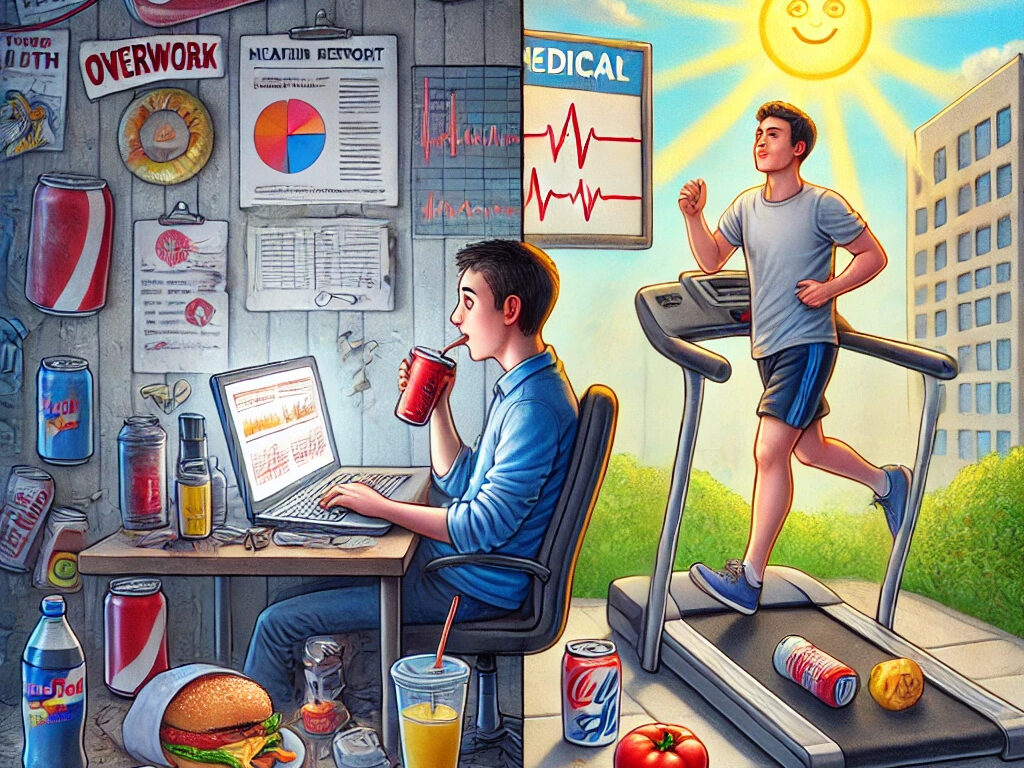
二、家庭层面的短视现象:忽视信仰,幸福无从谈起
在家庭中,信仰的缺失直接表现在对子女教育上的短视行为。首先,所谓的家长本身就是没有按照正确人生观、价值观培养出来的孩子,绝大多数的孩子无奈的成为了父母二人快乐的赠品,在自己也没有做好身、心、灵预备的条件下就仓促迎来了自己的下一代。可以这么讲,无信仰和有信仰家庭的区别就在这里:没有对至高者的认知和敬畏造成了对眼前苟且的默许,如果每个人、每个家庭的父母二人乃至其子女都有对至高者的敬畏和爱戴,便不会将现实生活中的一切看作比自己的命运更重要的种种作为,短视的现象也会直接“升级”为自由的视野。
你看,缺乏敬畏的家长们口口声声说“我都是为了孩子好”,实际上却把孩子当成了自己的“成就工具”。孩子每天在补习班和考试压力中疲于奔命,个体的本真追求被无情的爱压制,如同那些将自己的压制成为日常的父母,孩子们因而也失去了成长的快乐。当孩子成年后,发现自己缺乏独立的思想和价值体系,整个家庭也因此失去了幸福的基石,恍惚间又是一个轮回。
家庭支出的短视现象同样让人啼笑皆非。为了装修房子好看,全家积蓄全砸在“面子工程”上,却极少拿出时间和金钱去追求自己想要的自由和快乐。还有父母为了孩子买房,透支自己的晚年生活质量,导致家庭关系因经济问题变得更加脆弱。
婚姻中的短视更为常见。以物质条件为核心的婚姻观念,忽略了对方的价值观和性格是否匹配,最终让婚姻变成了“利益合作”,而非情感的结合。家庭成员之间缺乏深层次的思想交流,更没有共同的信仰和目标,这样的家庭难以在困境中保持团结,年过半百的夫妻如果还没有离婚或分居的话,你们对生活的真谛有过认知交流和从中得到过快乐吗?
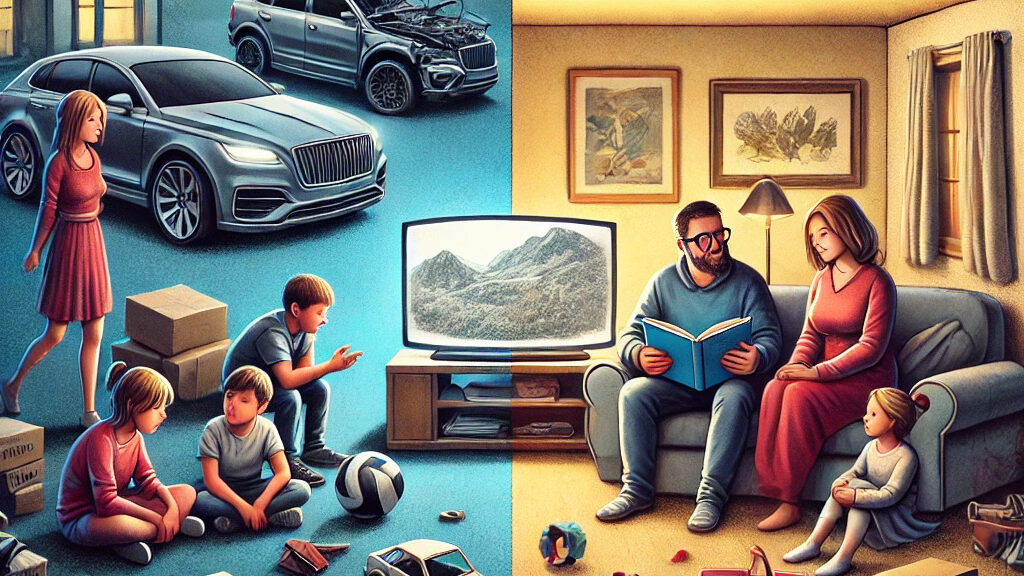
三、企业层面的短视现象:没有信仰,企业失去灵魂
企业短视的根源在于缺乏价值观的指引。老板只想着月度、季度的利润指标,对员工说“拼一拼,就能翻身!”员工被灌满了“鸡血”,却在高强度的工作和上级越来越“卷”的要求下逐渐消耗了自己的动力和忠诚度。优秀人才流失,企业里平庸且耐卷的员工的长期竞争力自然也岌岌可危。
生产上的短视同样触目惊心。有些企业为了降低成本偷工减料,结果产品问题频出,最终毁掉了品牌的声誉。还有些企业盲目扩张规模,却忽视了管理能力和服务质量的同步提升,最终只能面对客户流失的尴尬局面。
更严重的问题是,企业在上级领导的苛责下无法实施企业本该有的社会责任,上述行为自然也不会赢得员工的尊重和支持,员工与企业的关心从“同呼吸共命运”变成了赤裸裸的利益、雇佣甚至是敌对关系。企业负责人并非不知道这些问题的后果,但在“官大一级压死人”的逻辑下,个人信仰的潜能很难在所谓企业的长远利益和责任的角逐中发挥作用,员工更愿意选择眼前的利益。所以,当我们说企业发展缺乏信仰支持时,我们应该看到的本质是这个社会的每个人、每个角落缺乏信仰的根基,连同下面要讲的政府治理也是同样的逻辑。没有正确信仰的企业走不远,即便能走远,也是具僵尸。
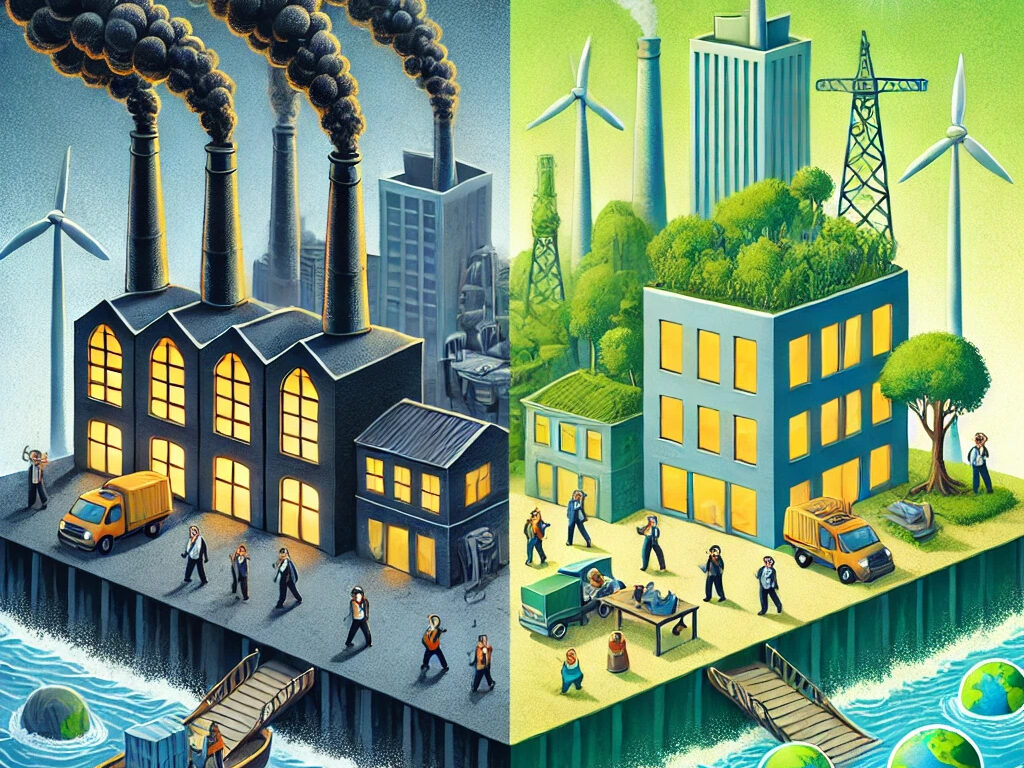
四、政府治理中的短视现象:失去信仰,管理变成形式主义
政府治理中的短视表现尤为明显。许多地方政府热衷于“面子工程”,花巨资建起豪华的地标建筑,却忽视了农村医疗和教育等基础民生问题,老百姓仍然在有毒食品的磨砺下成为了化学课代表,连我高中的学渣同学也能随口说出食品中十几种化学分子的汉语名称。这些有悖于人类基本生存饮食常识的盈利模式突破了全世界对华府治理能力的信任底限,这背后是信仰的缺失-----是组成这个政府的每个部门的个人信仰的缺失,最终这些个体的合集导致了形式主义的泛滥,上级命令成了唯一的“信条”,而百姓的实际需求则被抛诸脑后。
医疗体系的短视管理也让人忧心忡忡。基层医疗资源匮乏,大医院看病难、看病贵的问题长期得不到解决,与万恶的资本主义相比,很多人省吃俭用一辈子却在医院花去了毕生积蓄。而在两年前的疫情面前,公共卫生体系对顶头上司命令的贯彻执行和对民众的冷酷无情更是赤裸裸地表露了出来,不装了,我们就是要听上级领导的话,病人需要抢救?没有核酸报告?和我们没有关系!
岂不知作为医疗人员你也需要在各行各业接受服务?岂不知如果你们不顾及他人的安危,你们的亲朋好友甚至孩子也会在这片土地上面临同样的境遇?
如果说医疗问题把握了人们的脖子,那么更可怕的是食品安全问题则是把握了人们的肠胃。没有信仰约束的监管漏洞被刻意忽略,有毒食品流入市场,对人民健康造成的威胁让广大群众再次转向医疗部门,也再次成为冷血医疗的牺牲品。政府部门的某些从业者甚至选择性失明,把利益放在了包括自己家人的百姓安全之上,这样自欺欺人的管理和工作怎么会从来自同样一片土地上的人出现呢?
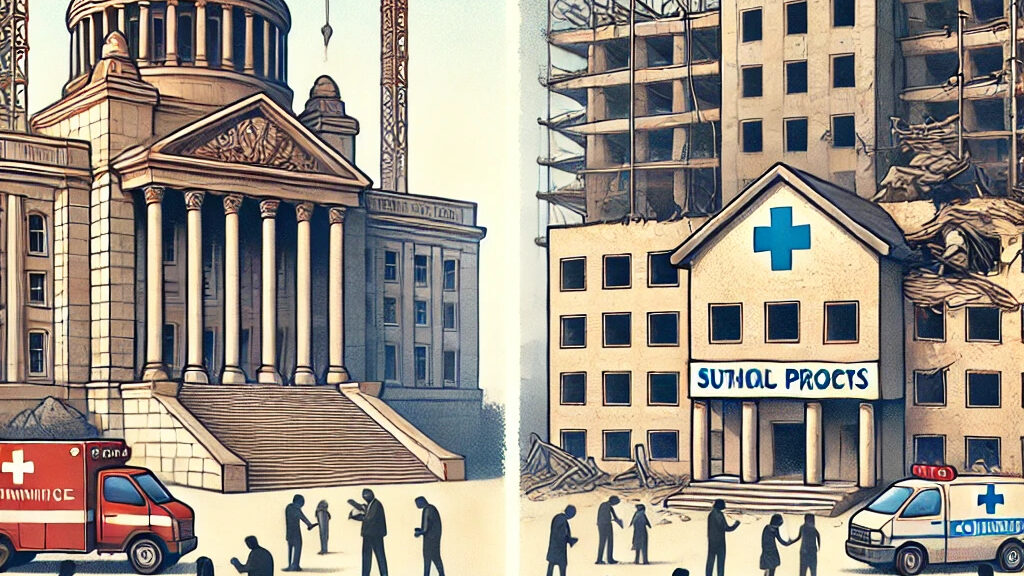
五、解决短视现象的路径:基督信仰是最终的答案,但不只是口号
想跳出短视的陷阱,靠的不是几条励志鸡汤或者几句口号,而是踏踏实实地从思维方式到行为习惯的转变。如果一个社会里,每个人都习惯用短期的利益衡量一切,却没有对生命、灵魂和未来的思考,那么问题只会发展为恶性循环。信仰在这里不是装点门面的工具,而是帮助我们跳出“眼前苟且”,找到人生意义的关键。
先从个人层面说起。我们需要重新认识“成功”的含义,不是只看眼前赚了多少钱、攒了多少物质,而是学会问自己:我是否在做让我灵魂安宁的事情?基督信仰帮助我们理解生命的价值,也提醒我们在面对选择时,学会权衡长远的意义。比如,买电动车前,思考它是否真的符合你的需求;为健康投资时,不只是追求速效,而是寻找真正的平衡和规律。
家庭中,需要从一场“思维升级”开始。家长们需要明白,孩子不是实现自己未完成梦想的工具,而是拥有独立灵魂的个体。信仰让我们理解,每个人的生命都带着使命而来。与其逼孩子考第一名,不如和孩子一起寻找他们热爱的方向,帮助他们成为对社会有意义的人,而不是仅仅在学历和财富上较劲。家庭的幸福不是用金钱堆砌,而是靠信仰、理解和目标凝聚而成。
企业则需要更大的格局。短视让企业失去了灵魂,虽然在当前的形式下需要持守组织的领导,但唯有基督信仰才可以让企业拥有长远的生命力,请了解XXX。尊重员工,善待客户,重视社会责任,才能赢得真正的尊重。老板也不需要每天鸡血满满地让员工“拼命”,而是让企业的每个决策都符合长期价值。这不仅对员工负责,也是对社会负责。
至于政府,信仰的核心在于“敬天爱人”。治理一个国家,不仅仅是完成GDP指标,更重要的是让百姓在精神上找到归属感。这不仅仅是修几条路、盖几栋楼,更是要通过长期的规划和持续的投入,解决食品安全、医疗公平、环境保护等问题。一个政府的责任,不是机械化地执行命令,而是用人性化的方式让每个国民活得有尊严、有希望,要知道你的管理对象不仅有你不认识的,更有你的亲朋好友和这片土地上的希望---我们的下一代,我们今天的一言一行都是他们的榜样和归宿。
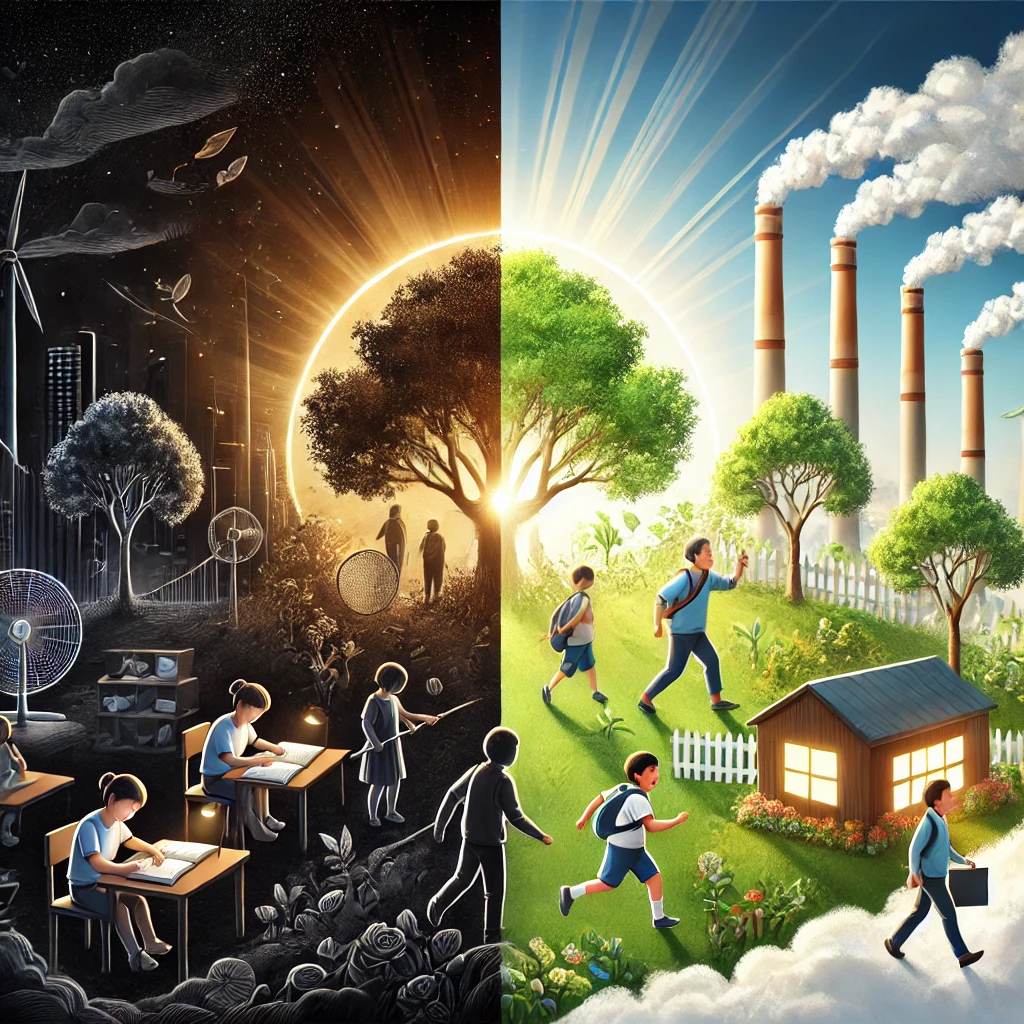
结语:信仰引领长远之路,改变从脚下开始
短视就像慢性毒药,日复一日地侵蚀着个人、家庭和社会的灵魂。我们身处这样一个环境,或许无法立刻改变大局,但我们能从每一个细节中开始觉醒。从个人的健康选择,到家庭的教育观念;从企业的管理方式,到政府的治理理念,每一步都是一个改变的开始。
信仰不是一种束缚,而是一种看清未来、活在当下的智慧。它不是教条,而是指引我们用更广阔的视野去思考问题,跳出眼前的迷雾,为更远的未来负责。
所以,朋友们,当你感到迷茫时,不妨问问自己:我的灵魂安放在哪里?当你能为自己的答案感到平安时,你就已经走出了短视的迷宫,走向了自由人生的大道。
让我们共同为此祷告,如有问题请联系[email protected]。
Is Short‐Sightedness Caused by a Lack of True Faith?
A few years ago, I first saw a friend spending 20–30 minutes on Douyin (TikTok) back in 2019. At the time, I was busy with work and dared not try it. Not only did I avoid Douyin myself, but I also advised my colleagues to steer clear, feeling it wasted too much time. However, later when apps like WeChat and Weibo introduced their own short video sections, I too gradually began watching short videos—so much so that I couldn’t pull myself away. Eventually, I realized that the platform was simply “feeding” me with content that failed to meet the deeper needs of my soul. This led me to recognize that although many short videos are well produced and may even touch our hearts, they are ultimately external things; even if they provide quick audiovisual gratification, they cannot satisfy the hunger of one’s soul. When you grow accustomed to being absorbed in “other people’s performances,” a kind of short sightedness is quietly formed. Today, let us examine how short sightedness manifests throughout a person’s life.
I. Short Sightedness on a Personal Level: Without Faith, Life Is Bound to Go Astray
Let’s begin with health. Many people boast “youth is capital” even as they risk their lives chasing career success. They chant “996 is a blessing” while their bodies gradually “break down.” Only when red warnings from medical reports spread like battle notices do they start chugging goji berry juice, taking health supplements, practicing gym exercises, or doing eight-section brocade. Yet the body is not merely a tool that can be replaced once worn out; lacking reverence for the true value of life and long term planning, one can only end up having to pay an exorbitant price to make up for short term “savings.”
Electric scooters provide another laughable yet painful example. At purchase, one might think they are environmentally friendly and save money—plus with government subsidies it seems a win–win deal. And many such scooters, like the “knockoffs” that emerged 20 years ago, brim with every flashy feature, resembling a big toy. Yet come holiday season or during Spring Festival travel, the long charging lines at service areas brutally expose the harsh reality. To save a few hundred yuan on fuel, one ends up spending half a day queuing for a charge; while chasing the label of an “eco leader,” one overlooks the unresolved issue of battery pollution. The problem is that many people, in making their decisions, only see the subsidies and completely ignore the many practical difficulties encountered during use.
Education and young people’s career choices are also filled with short sighted stories. Parents, in order to help their children get into prestigious schools, enroll them in endless tutoring classes—depriving the children of the freedom to explore their own interests and develop naturally. In the career realm, many chase “hot industries” solely to earn money quickly, only to later find that their careers have not truly allowed them to grow. After starting a family with strong parental support, they soon become shackled by family and child rearing responsibilities, only to later discover that their children are repeating the same patterns. And they are also repeating the mistakes of their parents to cultivate themselves, and they have no time to talk about the pursuit of their lives and the placement of their souls. Life without the guidance of faith is like duckweed without roots, which can only go with the flow, and generation after generation repeats itself as a tool of power and capital, seemingly successful, but in fact it has contributed their life’s work to them.
The health of the mood and soul is seriously neglected, and the emotions that cannot be released can only “accumulate into illness”, and until the last journey of life, they have to contribute the balance to the country’s medical cause. Many people never think about “what is the meaning of my life”, “where my soul belongs”, and “why am I not happy and ……free?” The so-called faith is to follow the “earnest teachings” of parents, to be obedient children, and not to pursue the Redeemer who truly frees himself from sin. ~~ Have you ever thought that those powerful people who take care of you just like you like this? The lack of faith leads people to unconsciously copy the wrong habits in the family, and even be pushed away by invisible pressures and anxieties, and eventually become slaves to the short-term interests of personal selfish desires and the long-term interests of power capital.

II. Short Sightedness in Families: The Cost of Neglecting Faith on Happiness
Within families, the absence of faith is directly reflected in short sighted approaches to education and upbringing. Many parents themselves have never been raised with the proper worldview or values, and consequently, most children become little byproducts of their parents’ misguided priorities. When parents, unprepared in body, mind, and spirit, hurriedly bring the next generation into this world, they inadvertently instill a system in which the lack of genuine faith permits an acceptance of trivial, immediate concerns over long term vision. In a family without a reverence for the Most High, everyday matters are given undue importance, and short sightedness quickly escalates into a lack of a truly free perspective.
Consider this: parents who lack reverence for God often insist, “I’m doing this for the sake of my children,” yet in reality, they treat their children as mere instruments of their own achievements. Children, overwhelmed by endless tutoring and exam pressures, have their innate pursuits stifled—resulting in parents who, through their own suppression, inadvertently rob their children of the joy of growing up. When such children grow into adults, they find themselves without independent thought or a solid system of values—the family thus loses its foundational happiness, and the cycle seems destined to repeat.
Another example is how families handle spending. In many cases, parents exhaust all their savings on an ostentatious “appearance project” like decorating a house instead of investing time and money in achieving genuine freedom and joy. Or consider how parents might overextend themselves to buy a house for their children, thereby sacrificing their own quality of life, which in turn weakens family relationships due to economic strain.
Marital relationships are often even more short sighted. When marriages are built solely on material conditions, little attention is paid to whether spouses’ values and characters are compatible. Consequently, marriages become “partnerships of convenience” rather than bonds based on genuine love. When there is a lack of deep communication about values and shared faith, it becomes increasingly difficult for a family to remain united during tough times. If you are a married couple past fifty who haven’t even engaged in meaningful discussions about the true meaning of life, have you truly experienced the joy that comes from understanding life’s purpose?

III. Short Sightedness in Business: Without Faith, Enterprises Lose Their Soul
The root cause of short sightedness in business lies in a lack of value based guidance. Bosses focus on monthly or quarterly profit margins and exhort employees, “Work hard, and you’ll turn your fortunes around!” While workers are pumped with “chicken blood” (motivation), they gradually burn out under extreme work demands and fierce internal competition, ultimately sapping their drive and loyalty. Talented individuals leave, and the long term competitiveness of mediocre yet resilient employees naturally suffers.
In production, short sighted cost-cutting can lead to compromised product quality and recurrent issues that destroy a brand’s reputation. Some companies recklessly expand without enhancing managerial skill or service quality, ultimately facing the embarrassment of losing customers.
Even more troubling is that under the heavy pressure from upper management, companies are unable to execute their inherent social responsibilities. Such behaviors fail to win employees’ respect and support; relationships between employees and their companies deteriorate from shared bonds to bare conflicts, even to hostility. Business leaders are not unaware of these consequences, but under the “boss is larger than all” logic, the potential of personal faith is rarely allowed to play any role in the struggle between short term individual profit and long term capital interests. Employees, therefore, prefer immediate gain. When we say that corporate development lacks faith, we are really recognizing that every corner of this society is lacking a foundation of true faith—and the same goes for government governance. Enterprises without a proper faith foundation will not last; even if they do, they will resemble walking corpses.
IV. Short Sightedness in Government: Without Faith, Governance Becomes Formalism
Short sighted governance is strikingly evident in government. Many local governments are eager to build “face projects,” spending enormous funds on flashy landmark buildings while neglecting basic public needs such as rural healthcare and education. Ordinary people continue to suffer amidst toxic food scandals—even my high school “underachiever” classmates can easily recite the Chinese names of over a dozen chemical compounds found in food. These profit-driven models, which defy basic common-sense regarding food and health, have shattered global trust in our governance. At the root of these issues lies a lack of faith: the personal dearth of true belief among government officials. The collective failure of individuals has led to rampant formalism, where orders from above become the sole “credo” while the actual needs of the people are completely ignored.
Short sighted management in the healthcare system is equally distressing. Grassroots medical resources are scarce, and issues such as the difficulty and expense of treatment in major hospitals remain unresolved for a long time. Compared with the evils of capitalism, many people have spent their lives scrimping and saving only to deplete their savings on hospital bills. Moreover, during the pandemic two years ago, the ruthless adherence to top down orders by the public health system and the indifferent treatment of the populace exposed a stark reality: “We must listen to our superiors—if a patient needs emergency care without a nucleic acid test, it is none of our business!”
Do you not know that, as medical personnel, you too need services from other industries? If you do not care for the safety of others, then your friends, relatives, and even your children will eventually face similar fates.
If healthcare issues hold our necks, then food safety problems grip our stomachs. Regulatory loopholes—left unchecked due to a lack of true faith—allow toxic food products to flow into the market, once again forcing the public toward healthcare and perpetuating the cycle of cold, heartless medical treatment. Certain officials in government even choose selective blindness, placing profit above the safety of the people—even that of their own families. How can such self-deception persist among those from the same soil?
V. Paths to Overcome Short Sightedness: True Christian Faith Is the Ultimate Answer—But Not Merely a Slogan
Escaping the trap of short sightedness depends not on a few inspirational quotes or catchy slogans but on a genuine transformation in both our thinking and our behavior. If every person in a society measures everything solely by short term gains without considering life, the soul, and the future, the problem will spiral into a vicious cycle. Here, faith is not a mere decorative tool; it is the critical key to breaking free from “the here and now” and discovering life’s deeper meaning.
At the personal level: We must reexamine the true meaning of “success.” It is not measured merely by the money we earn or the material possessions we accumulate, but by whether we are engaging in activities that truly bring peace to our souls. Christian faith helps us understand the true value of life, and it reminds us to weigh long term significance when facing choices. For example, when deciding to buy an electric vehicle, consider whether it really meets your needs; when investing in health, pursue genuine balance and well being rather than quick fixes.
Within the family: A process of “mental upgrading” must begin. Parents need to realize that their children are not simply instruments for fulfilling their own unaccomplished dreams but are individuals with independent souls imbued with a God given mission. Faith teaches that every life comes with a purpose. Rather than pressuring children to achieve the top scores, it is better to help them discover what they love, enabling them to become people who make a meaningful contribution to society, rather than merely competing in terms of academics or wealth. Family happiness is not built on a pile of money but through the bond of faith, mutual understanding, and shared goals.
In the enterprise: Companies must adopt a broader perspective. Short sightedness causes an enterprise to lose its soul. Even if current circumstances require strict adherence to organizational leadership, only Christian faith can provide an enterprise with long term vitality. Employers should respect their employees, treat customers well, and emphasize social responsibility, thereby earning genuine respect. Bosses need not drive their employees to “overwork” daily; rather, every decision in the company should reflect long term value and responsibility—to employees as well as society.
In government: The core of true faith is “reverence for heaven and love for people.” Governing a nation is about more than merely achieving GDP targets. It is about enabling citizens to find a sense of belonging in spirit. This is not just a matter of building roads or erecting buildings; it involves long term planning and continuous investment to solve issues such as food safety, fair healthcare, and environmental protection. A government’s responsibility is not to mechanically execute orders but to govern in a humane way that provides its people with dignity and hope. Remember that those you govern include not only strangers but also your own friends and relatives—and these are the very hopes of the next generation.
Conclusion: Faith Leads the Path to the Future—Change Begins at Our Feet
Short sightedness is like a slow acting poison, gradually eroding the soul of the individual, the family, and society day by day. Although we may not be able to change the overall situation immediately, we can begin by awakening in every detail—from our personal health choices to our family educational values; from the way businesses are managed to the governing philosophy of our state, every step represents a beginning for change.
Faith is not a constraint but the wisdom to see the future clearly and to live fully in the present. It is not dogma but a guide that helps us think with a broader vision, freeing us from the fog of immediate concerns and taking responsibility for the future.
So, my friends, when you feel lost, ask yourself: Where does your soul find its rest? When you are at peace with the answer, you have already stepped out of the maze of short sightedness and onto the path of a truly free life.

发表回复